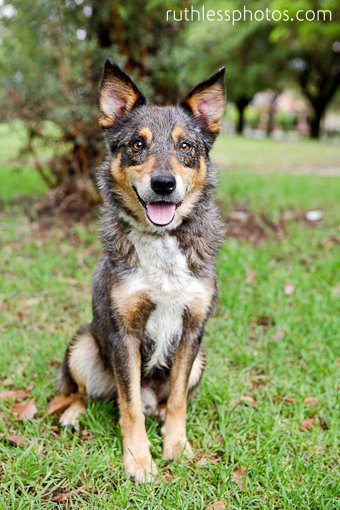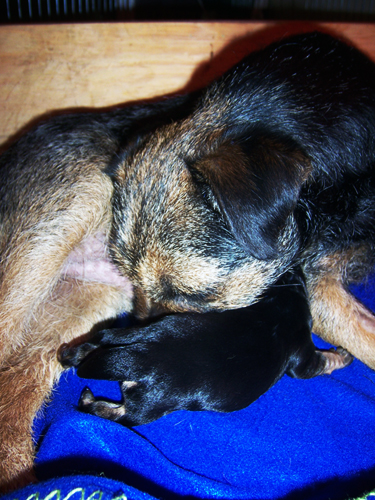Recently, I had the pleasure of listening to Paul McGreevy present a two-day lecture.
Paul McGreevy is from The University of Sydney’s faculty of vet science. He is a vet that practiced in the UK for 5 years, before pursuing an interest in behaviour. His approach is scientific, with frequent references to academic studies throughout his lectures. He is the author of A Modern Dog’s Life (“a rant about what we could do better for welfare”) and Carrots and Sticks (interviews with animal trainers globally). He concluded his sessions with an emphasis on the help science can provide to the training field, that there is “room for humanity” within science, and there is still plenty to learn.

Photos © Ruthless Photos
I have been struggling for several weeks to begin writing my summary of his two-day seminar. I think that, due to the breadth of topics covered, I have had a little difficulty organising my thoughts and the best order for presenting the topics on this blog.
What I have decided may be best is to summarise some of the topics covered, in preparation for more in-depth posts as time progresses. As such, this post is likely to be edited overtime and act as an index to future posts.
Firstly, I thoroughly enjoyed the scientific nature of this seminar. Paul McGreevy went into details examining many aspects on the nature of dog science, and then also specific dog studies that has taken place. In a way, Paul described a very similar phenomena to what I described in my post Paucity in Dog Science. However, this is a lot more to the dog-science conundrum than I initially thought. I will review this topic with enthusiasm!
Paul McGreevy also spoke a great deal about dog breeding, with a particular focus on dog health. As a dog breeder, I was perhaps sensitive to this information, but I surprisingly found myself quite receptive to his ideas. Basically, Paul believes that the health of dogs should be at the forefront of breeding practices and that inherited disorders should be considered a form of cruelty.
This was a dog training seminar, so Paul did consider the four quadrants of operant conditioning and other training principles (such as classical conditioning and non-associative learning) a great deal. He talked about what he thought were ‘the keys’ to dog training. He also spoke specifically about improving dog recalls. Though there were the occasional tidbits that offered new insights, for the most part the information was not new to me. However, Paul talked a lot about horse training which I found incredibly interesting. I have a curiosity in horses, yet not enough to actively pursue the subject.
Paul considered the ethical and welfare issues concerning working dogs. That is, working dogs in all aspects – from sheep dogs, to assistance dogs, to police or customs dogs. This was definitely thought provoking, and another issue I will look forward to examining in more depth. He refers to his work with the Australian Working Dog Survey, though I am yet to read this document thoroughly.
The book Paul wrote, and refers to, A Modern Dog’s Life, concerns the stresses of day-to-day life that dogs have to contend with. Though these weren’t at the forefront of his seminar, they were addressed throughout and did provide interesting food-for-thought. These also encompasses, in some ways, the extraordinary dog senses and the challenges these pose for dog trainers. He also considered how desexing, disease and aging could influence behaviour.
McGreevy Seminar Index
Dog Training
McGreevy on ‘The Keys’ to Dog Training
Classical Conditioning Bits
Operant Conditioning Bits
McGreevy on Rewarding Dogs
McGreevy on Punishing Dogs
McGreevy on Non-Associative Learning
General Dog Training Thoughts from Paul McGreevy
7 Tips for Improving Your Dog Recall
Other
Dog Senses (with Paul McGreevy)
Questioning Working Dogs (the ethics of dogs working for us)
McGreevy’s Thoughts on Dog Breeding
McGreevy’s Thoughts on Dog Science
McGreevy on a Modern Dog’s Life
Vets, Sex, Disease, and Aging





